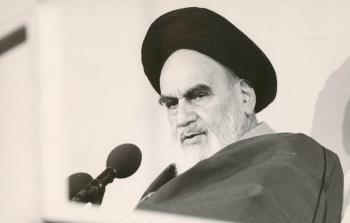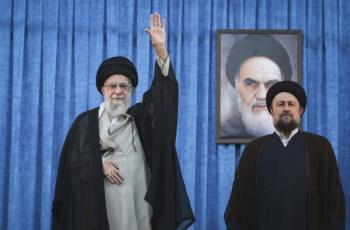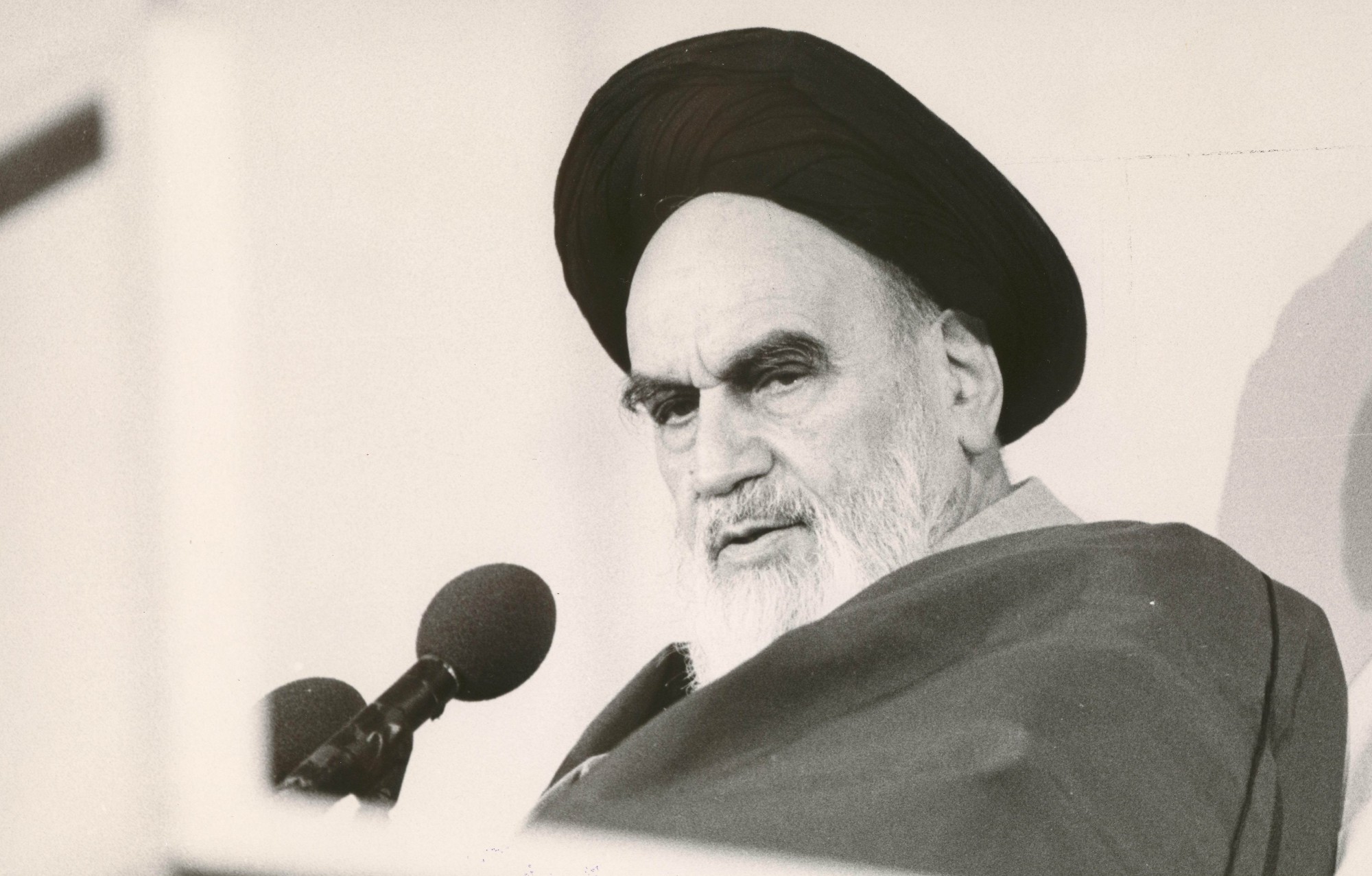Alwaght- With the arrival of anniversary of the founder of the Islamic Republic of Iran, Imam Khomeini, and amid the commemorations in Iran and across the Muslim world, there is an opportunity to once again bring in spotlight the profound and eternal scientific, intellectual, political and revolutionary legacy of this legendary leader beside delving into the personality dimensions of this spiritual and religious figure.
A majority of the analyses of Imam Khomeini's legacy and character are not only driven by passion of his lovers for this wise leader, but also by their observation of the profound influence of his ideas, thought, and political legacy on the world or his predictions of the world developments that could not have been perceived rightly during his life and now the world is seeing them clearer than before.
Among of the most important political and revolutionary legacies of Imam Khomeini were his stances, views, and actions concerning the Palestinian cause. The Palestinian cause has always been one of the most important concerns of the Muslim world. However, it is important to note that today, more than ever before and more than any other issue in contemporary human history, the Palestinian issue has become the boundary between right and wrong and the understanding of the distinction between imperialist and overbearing policies and governments and the popular, pro-justice, and pro-freedom governments.
Today more than any other time the stances of the governments and nations in the face of the Israeli crimes represent a clear boundary between the fake and true advocates of human rights and justice. As Imam Khomeini predicted, Palestine has become a test of the sincerity of pro-liberation movements and governments, a test in which some pro-rights claims fail as they support Israeli occupation and children killings.
This actually reveals the depth of Imam Khomeini's awareness and understanding of the importance of the Palestinian cause and its being a compass criterion in the process of developments in the contemporary world.
At a time when many Arab and Islamic governments under the influence of colonial powers had turned to making compromises to the Israeli regime, Imam Khomeini, with a deep understanding of the conspiracies of Western imperialism, raised the Palestinian issue as a fundamental case in his revolutionary struggles. He not only kept this issue alive during the struggle against the pro-Western Pahlavi regime in Iran, but also established it as the red line of the Islamic ummah after the game-changing Islamic Revolution of 1979.
Imam Khomeini's uprising in the 1960s: Rising the voice of Palestine
Since the start of his movement in the 1960s, Imam Khomeini brought up question of Palestine as a symbol of struggle against oppression and Western imperialism. While the Pahlavi rule under the US encouragement and support was seeking normalization with the Israeli occupation, Imam Khomeini in his speeches brazenly talked against the Israeli crimes in Palestine.
One of the turning points of this era was the Imam's "objection to the capitulation bill in 1964," under which Americans in Iran were granted judicial immunity. In his historic speech, the Imam not only objected to American interference in Iran, but also considered it to be in line with Israeli interests and undermining the Muslim world. This stance established the foundations of the simultaneous struggle against domestic tyranny, imperialism, and Israeli occupation in his thought.
Islamic revolution and shift in regional equations
Victory of the 1979 Islamic Revolution and toppling of Pahlavi rule as the West's puupet marked a turning point in West Asia history. Founding a government based on pure Islam, Imam Khomeini not only freed Iran from under the yoke of the US and Israel, but also presented a new pattern for resistance against imperialism and occupation in the region.
One of the Imam's first revolutionary moves was to cut off ties to the Israeli regime and close the Israeli embassy in Tehran. This symbolic action sent a clear message to the Muslim world: Israel as a "cancerous tumor" must be erased from the face of the earth and the land of Palestine must be returned to its original owners. This message, which later became one of the fixed principles of the Islamic Republic of Iranh, demonstrated the Imam's resolve to confront American and Israeli hegemony in the region.
With the start of the war Saddam Hussein of Iraq imposed on Iran in 1980, the US and its allies tried to nip the Islamic Revolution in bud. However, Imam Khomeini, with his astute and sagacious leadership, not only did not allow the war to isolate Iran, but also turned it into an opportunity for Islamic awakening.
During the war, he always highlighted the Palestinian issue and asserted it was a duty of Muslims to help resistance groups fighting Israel. The formation of the IRGC's Quds Force at his order was a strategic step to support Palestinian fighters and confront Israeli occupation. This movement strengthened the foundations of the Axis of Resistance, which has become one of the most effective camps confronting Israel today.
Imam Khomeini and Muslim world's unity against Zionism
Imam Khomeini always stressed on the Islamic unity against the common enemy Israel. He declared the last Friday of the holy month of Ramadan as "world Quds Day", giving the Islamic ummah a symbol of unity and convergence.
"Quds Day is the day of Islam... It is a day when all Muslims must wake up and stand against [Israeli] foreigners," he said referring to Israeli occupiers.
This smart move transformed the Palestinian cause from an Arab case to a universal obsession of the Muslims. Even many pro-liberation movements around the world fought imperialism as they were inspired by Imam's thoughts. With utmost vigilance, Imam Khomeini shattered the American plans to dominate West Asia, proving that the only way to salvation of the Islamic ummah is resistance and unity.
Imam's passing and expansion of resistance path
The founder of the Islamic Republic passed away on June 3, 1989, but his revolutionary legacy is still alive and flourishing under the "discourse of resistance."
Today, on the one hand, resistance groups in Palestine, Lebanon, Yemen, and other parts of the region, inspired by the Imam's thoughts, continue to confront American hegemony and the Israeli regime's occupation, and its emergence in the conscience of Muslims in Islamic societies is revealing the true colors of the ostensibly Muslim rulers and governments. Actually, resistance represents a firm barrier in the path of treasonous plots of some Arab rulers seeking to bury the Palestinian cause and complete their normalization process wifb Israeli regime.
On the other hand, the discourse of resistance around liberation of Palestine has penetrated deep into the spirit of the free youths of the world, even next to the White House, and protest movements against Israel and the pro-Israeli policies of imperialist powers grow stronger day by day.
Today and more than three decades after Imam Khomeini's passing, the Islamic Republic as the leader of this path, firmly stands on the hiss ideals and gives the Palestinian cause a top prioty.



























